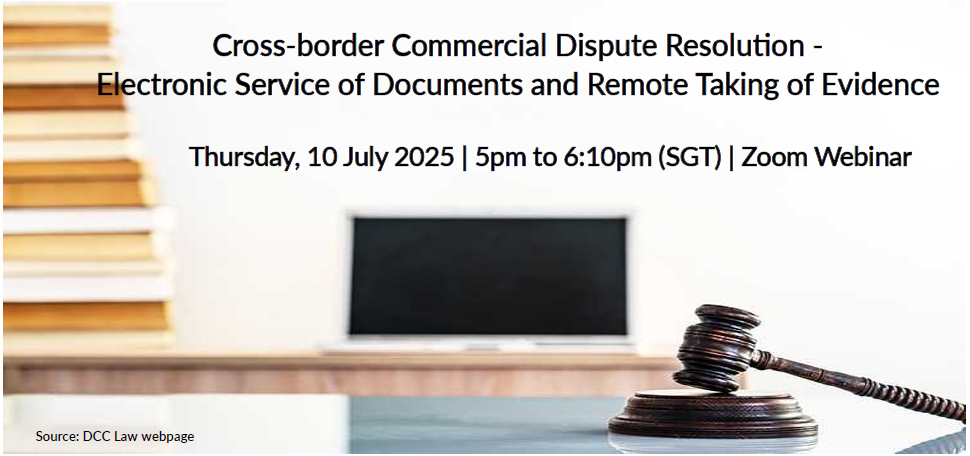
In 2022 and 2023, CJO posted about two joint webinars between the Singapore-based Asian Business Law Institute (ABLI) and the Permanent Bureau of the Hague Conference on Private International Law (HCCH) on cross-border commercial dispute resolution, focusing on the Service Convention and the Choice-of-Court and Judgments Conventions, respectively. The two organizations return this year with their fourth joint session, this time on electronic service of documents and remote taking of evidence.
Titled Cross-border Commercial Dispute Resolution – Electronic Service of Documents and Remote Taking of Evidence, the webinar will take place on Thursday July 10 between 5 to 6:10pm (Beijing/Hong Kong/Singapore time), and is expected to discuss, among others, electronic transmission of requests under the Service Convention, such as the use of IT for communication among Central Authorities and other competent authorities, service by electronic means across different jurisdictions, and remote taking of evidence by video-link and electronic evidence under the Evidence Convention.
Invited speakers include Melissa Ford, Secretary of HCCH, Lucinda Orr, Partner of Enyo Law LLP, Justice Anselmo Reyes, International Judge of the Singapore International Commercial Court, and Dr Xu Guojian, Senior Partner of SGLA Law Firm.
For more information or to register, click here.
Early bird discount is available till 10 June.
Queries about the webinar can be directed to Catherine of ABLI at abli_info@abli.asia.
Contributors: CJO Staff Contributors Team









